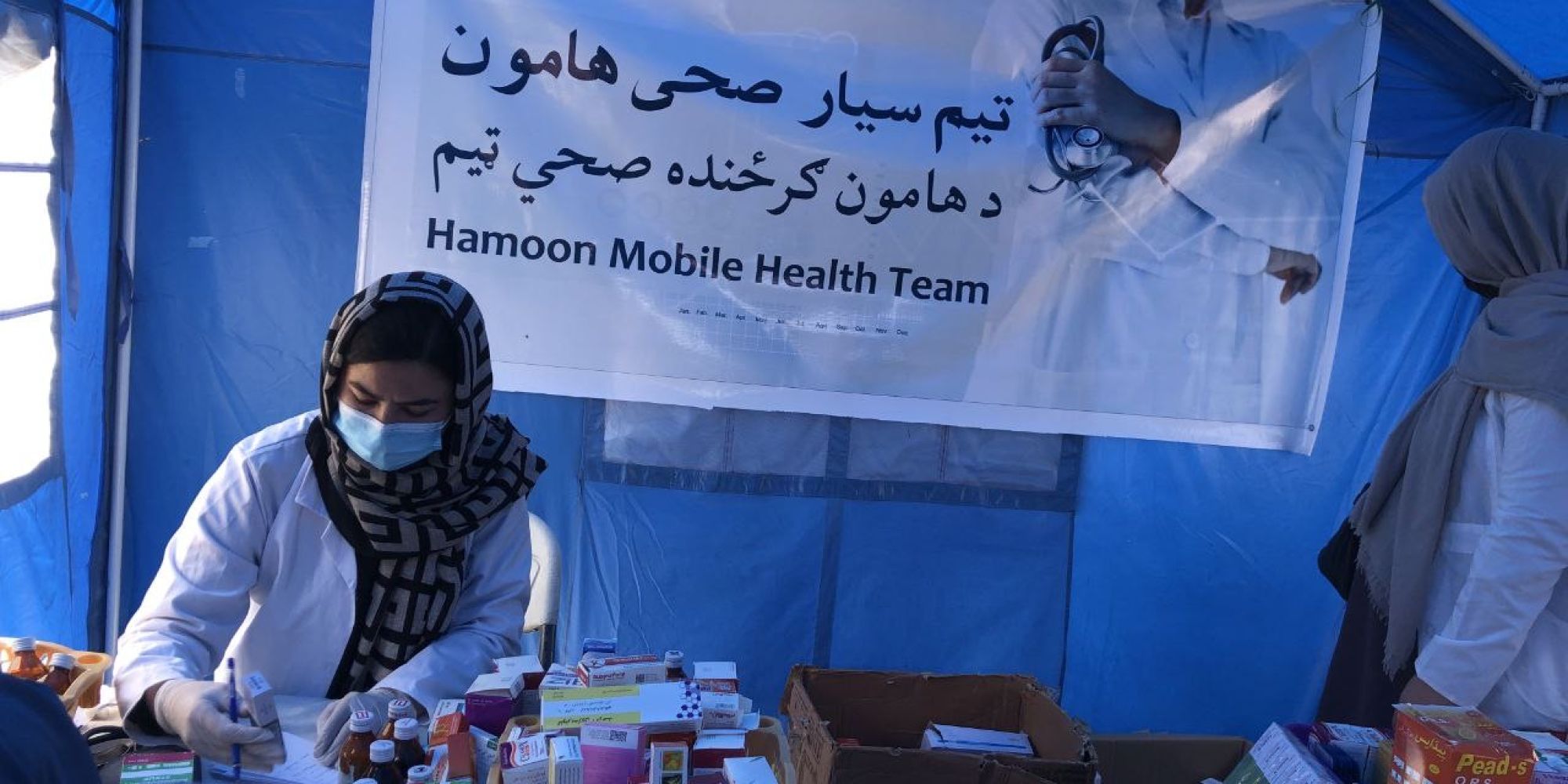
The Hamoon Mobile Health Unit in a slum near Kabul
The Hamoon Mobile Health Unit in a slum near Kabul
The Hamoon Mobile Health Unit provides essential health services to women and children.
We are publishing the latest report, which arrived yesterday, from the Afghan organization that manages the Unit relating to the intervention carried out in a shantytown self-built by internal refugees not far from Kabul, marginalized and abandoned by the de facto authorities.
The story testifies, once again, to the inhuman conditions faced by the population of Afghanistan.
The Hamoon Mobile Health Team provided essential medical services to women and children living in makeshift homes in Chahara-e-Sarsabzi, a marginalized and remote IDP camp near Kabul.
These families have faced years of war and adversity, losing their homes and seeking refuge in Kabul, only to encounter further poverty and hardship. They live in fragile, dark homes lacking basic amenities. When we approached this camp, it was unbelievable to find such conditions near the capital city where for twenty years, the United States spoke of democracy, women’s rights and reconstruction. Yet here, women and girls were lost amidst piles of garbage, their eyes full of pain and suffering.
Upon seeing our health team, people ran to us with joy. An elderly man asked with despair, “Have you lost your way?” Our doctors compassionately treated the desperate people in this camp. Each woman, girl, and child who received care was found to be suffering from severe infections, largely stemming from their involvement in garbage collection and sorting activities.
Beside the illness, most patients were malnourished and weak, suffering from inflammatory diseases and vitamin deficiencies due to lack of access to proper food and clean drinking water.
Habiba, a middle-aged woman, came to us seeking treatment for herself and her young daughter who were suffering from throat infections and diarrhea caused by their environment. “The pain and suffering of women never seem to end. After us, it will be our daughters who will suffer and die in poverty and hunger,” she lamented. “I lost my husband years ago, and I have two daughters aged 12 and 18, as well as a 15-year-old son. My son collects garbage nearby during the day and brings it home, where my daughters and I spend the entire day sorting through it, hoping to find leftover food to eat and plastics to sell. Every day, my daughters and I fall sick. No one can ever get used to eating leftover food from garbage; we are simply forced to do so,” she said tearfully, wiping away her tears.
One of our team members embraced her and provided the necessary vitamins and medications, though unfortunately, it could only alleviate a fraction of her pain and suffering.
Each patient had stories of years of war, suffering, and poverty that had plagued them. None of the children were attending school, and as child laborers, they had to solely fill their families’ stomachs. They could only lament their lost opportunities for schooling and education.
The health team spent the whole day with them, not only curing and distributing medicine and supplies but also listening to their pains and sorrows. In the end, people waved goodbye with kindness, pleading for us to visit again, as nobody else cares to help them; they have all been forgotten.
